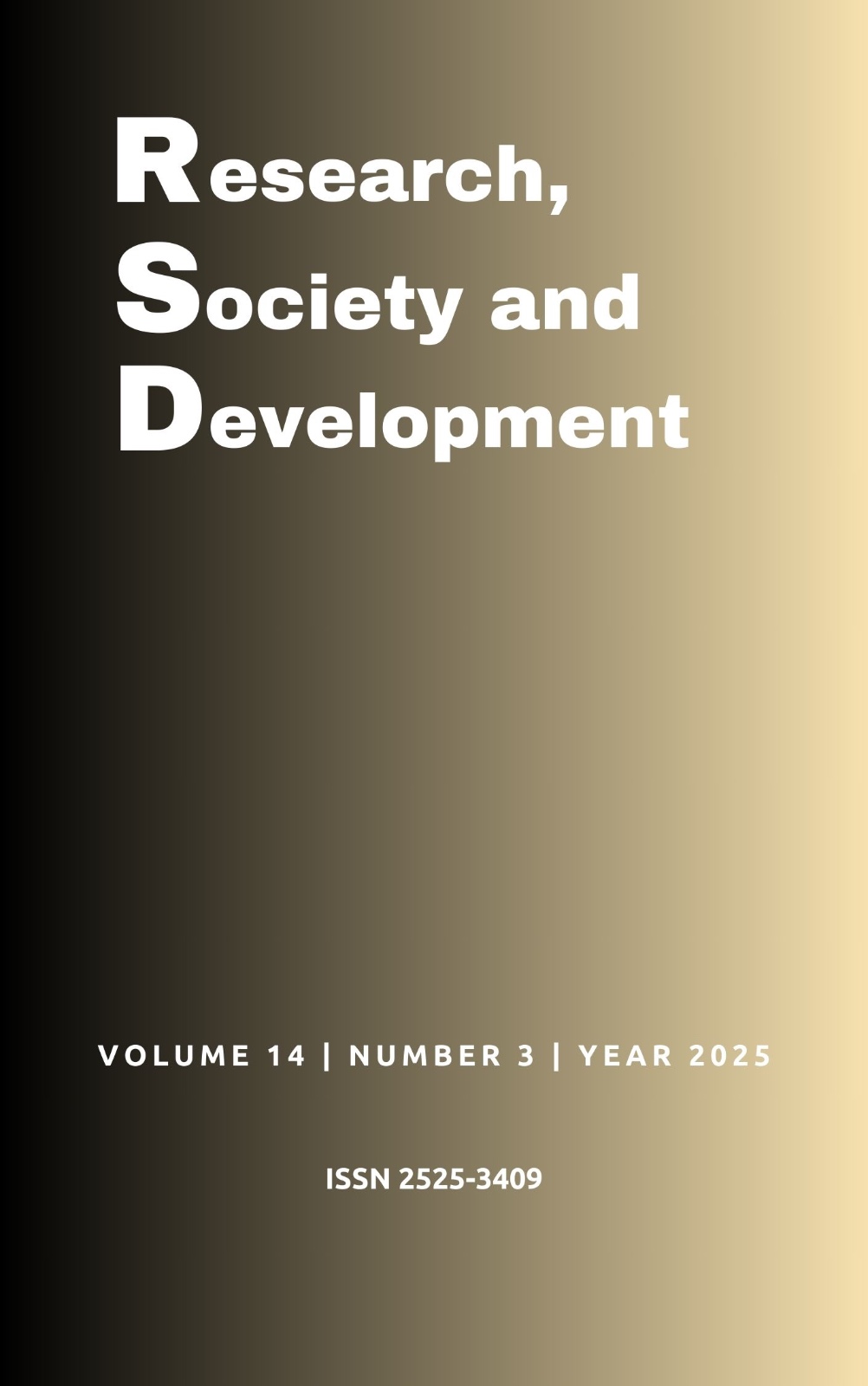Effective management of polytrauma: Applying the Airway, Breathing, Circulation, Disability, Exposure (ABCDE) method and the Advanced Trauma Life Support (ATLS) protocol to reduce mortality
DOI:
https://doi.org/10.33448/rsd-v14i3.48472Keywords:
Trauma, Polytrauma, Trauma management, Polytraumatism.Abstract
Trauma can be defined as an injury caused by external and violent action. Polytrauma is classified as two or more serious injuries in two or more areas of the body. Knowledge of polytrauma management techniques is essential for managing the condition quickly and accurately, reducing the risk of death. The article aims to review the management of polytrauma patients, seeking to contribute to improving the care of these patients. The narrative literature review methodology was used to prepare the work. The trauma victim patient should be evaluated based on the ATLS protocol, performing an assessment of the airway and stabilization of the cervical spine, ventilation and respiration, circulation, neurological assessment, and exposure and control of the environment, forming the ABCDE. It is essential that health professionals master the ATLS protocol, seeking to provide accurate and agile care to patients.
Downloads
References
ACS. (2018). ATLS – Advanced Trauma Life Support for Doctors. 10ed. Chicago: American College of Surgeons (ACS). Committee on Trauma.
Amoroso, D. (2020). Atendimento inicial ao politraumatizado. In: Velasco, I. T. et al. (2020). Medicina de emergência: abordagem prática. 15ed. Barueri: Manole. Cap. 76. p. 1017-1027
Casarin, S. T. et al. (2020). Tipos de revisão de literatura: considerações das editoras do Journal of Nursing and Health.Journal of Nursing and Health. 10(5). https://periodicos.ufpel.edu.br/index.php/enfermagem/article/view/19924.
Pereira A. S. et al. (2018). Metodologia da pesquisa científica. [free e-book]. Editora UAB/NTE/UFSM.
Prodanov, C. C., & Freitas, E. C. (2013). Metodologia do trabalho científico: métodos e técnicas da pesquisa e do trabalho acadêmico. (2a ed.), Nova Hamburgo: Editora Feevale.
Rother, E. T. (2007). Revisão sistemática x revisão narrativa. Acta Paul. Enferm. 20(2). https://doi.org/10.1590/S0103-21002007000200001
San Juan, J. et al. (2021). Shock Index asociado a la edad y al Glasgow Coma Score como predictor de mortalidad en la atención inicial del paciente politraumatizado. Revista de la Sociedad Española de Medicina de Emergencias. 33(6), 427
Santos, J. J. S. et al. (2021). Epidemiologia das vítimas de trauma atendidas por serviço pré-hospitalar
SBTO. (2022). O que caracteriza um politraumatismo? Sociedade Brasileira do Trauma Ortopédico (SBTO). https://otrauma.com.br/2022/05/24/oquecaracterizaumpolitraumatismo/#:~:text=O%20politraumatismo%20%C3%A9 %20caracterizado%20por,extremos%2C%20pode%20levar%20a%20%C3%B3bito
Snyder, H. (2019). Literature review as a research methodology: An overview and guidelines. Journal of business research, 104, 333-339.
Sousa, A. S.; Oliveira, G. S.; Alves, L. H (2021). A pesquisa bibliográfica: princípios e fundamentos. Cadernos da Fucamp, 20(43). https://revistas.fucamp.edu.br/index.php/cadernos/article/view/2336.
Souza, M. T., et al. (2010) Revisão integrativa: o que é e como fazer. https://doi.org/10.1590/S1679-45082010RW1134
Toassi, R. F. C. & Petry, P. C. (2021). Metodologia científica aplicada à área da Saúde. (2ed.). Editora da UFRGS.
Downloads
Published
Issue
Section
License
Copyright (c) 2025 Amanda Martins Fagundes; Richiele Forgiarini Portella; Anita Faccini Lied; Felipe Neiva Barbosa; Alanna Malheiros Silva

This work is licensed under a Creative Commons Attribution 4.0 International License.
Authors who publish with this journal agree to the following terms:
1) Authors retain copyright and grant the journal right of first publication with the work simultaneously licensed under a Creative Commons Attribution License that allows others to share the work with an acknowledgement of the work's authorship and initial publication in this journal.
2) Authors are able to enter into separate, additional contractual arrangements for the non-exclusive distribution of the journal's published version of the work (e.g., post it to an institutional repository or publish it in a book), with an acknowledgement of its initial publication in this journal.
3) Authors are permitted and encouraged to post their work online (e.g., in institutional repositories or on their website) prior to and during the submission process, as it can lead to productive exchanges, as well as earlier and greater citation of published work.


